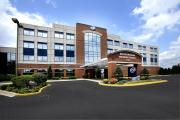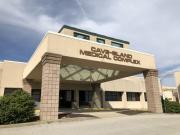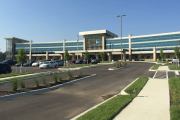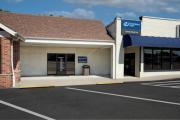Gallbladder Cancer
A gallbladder cancer diagnosis can feel overwhelming. But you aren’t alone. As the largest practice of our kind in western Kentucky, we have the resources and experience to meet a broad range of needs, from diagnostic testing and treatment to survivorship services.
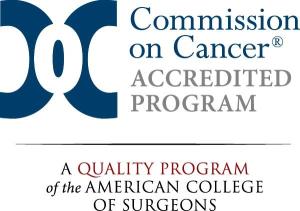
We have specialists experienced in treating this complex disease. And, as an accredited Comprehensive Community Cancer Program, we offer nearly all the same options and technology you’d find at an academic medical center.
We’ll work with you—and one another—to develop a treatment plan that’s personalized to you, taking into account your unique diagnosis, needs and treatment goals. Our multidisciplinary team of cancer doctors and supportive care clinicians won’t just treat your cancer, but your mental and emotional health, too.
What is Gallbladder Cancer?
Gallbladder cancer is a rare form of cancer that develops when abnormal cells in the gallbladder grow out of control. It typically begins in the inner layer of the gallbladder wall and then spreads into the wall’s outer layers as it grows.
Gallbladder Cancer Symptoms
Often, gallbladder cancer doesn’t cause symptoms until the disease has advanced, making it harder to treat. However, the most common symptom is persistent stomach pain, usually on the upper right side of the abdomen.
Other gallbladder cancer symptoms include:
- Abdominal lumps or swelling
- Dark urine
- Itchy skin
- Jaundice
- Nausea and vomiting
- Weight loss
Gallbladder Cancer Risk Factors
Most risk factors for gallbladder cancer are related to chronic inflammation in the organ. A risk factor is something that increases your risk for developing a certain type of cancer. And while you can’t change some risk factors, like those related to genetics, you can impact those related to lifestyle.
Common risk factors are:
- Age, with 72 as the average age of diagnosis
- Ethnicity and geography, with most cases affecting people of Mexican, Latin American or Native American descent in the United States
- Family history
- Gallstones, which develop when “stones” of cholesterol and other substances collect in the gallbladder. Up to four out of five people with gallbladder cancer have gallstones when they’re diagnosed, but most people with gallstones never develop gallbladder cancer.
- Gender, with incidence rates occurring much more often in women than in men
- History of certain infections, such as chronic infections with typhoid
- History of choledochal cysts, which are bile-filled sacs that run along the bile duct, or gallbladder polyps, which are growths formed by cholesterol deposits in the gallbladder wall
- Obesity
- Porcelain gallbladder, which is a condition that causes calcium deposits to build up on the wall of the gallbladder.
- Primary sclerosing cholangitis (PSC), an inflammatory condition that causes scar tissue in the bile ducts
- Tobacco use
Diagnosing Gallbladder Cancer
Sometimes, gallbladder cancer is found when the gallbladder is removed due to gallstones or to treat chronic inflammation. Most cases, however, aren’t found until the cancer has advanced.
If you have symptoms consistent with gallbladder cancer, we’ll perform a physical exam and ask you about your medical history. The exam will likely focus on any lumps or tenderness in the abdomen and include checking your skin and eyes for jaundice.
If we suspect cancer, we may perform:
- Blood tests, including tests to see how much bilirubin (the chemical that causes jaundice) and other liver enzymes are in the blood.
- Imaging tests, such as an abdominal ultrasound, CT scan or MRI. We also may recommend a special kind of MRI called MR cholangiopancreatography (MRCP) to look at the bile ducts, or MR angiography (MRA) to look at the blood vessels.
- Laparoscopy, which involves a small incision in the front of the abdomen so a doctor can look at the gallbladder, liver and other organs and tissue and plan surgery and other treatments. Laparoscopy also may be used to take out your gallbladder—a procedure called a laparoscopic cholecystectomy.
- Biopsy, which tests a tissue sample for signs of cancer and is the only way we can definitively diagnose the disease.
Treating Gallbladder Cancer
A gallbladder cancer diagnosis requires expert care from a multidisciplinary team of board-certified specialists. That’s why your care team may include a variety of medical professionals, including a medical oncologist, radiation oncologist, surgical oncologist and gastroenterologist, as well as supportive care clinicians, such as dietitians, counselors and nurse practitioners.
Treatment may involve a certain therapy, or a combination of therapies, depending on factors like your general health and whether your cancer has advanced.
In general, treatment may include:
- Chemotherapy, which may be used before surgery to shrink a tumor or after surgery to destroy any remaining cancer cells. We may also use it to reduce symptoms.
- Immunotherapy, which involves using drugs, such as durvalumab (IMFINZI®) in combination with chemotherapy drugs, to treat certain types of gallbladder cancer.
- Radiation therapy, which may be used before surgery to shrink a tumor or after surgery to destroy any remaining cancer cells. It may also be given during surgery or combined with chemotherapy.
- Surgery to remove the tumor and some of the surrounding tissue and lymph nodes or to relieve symptoms.





































